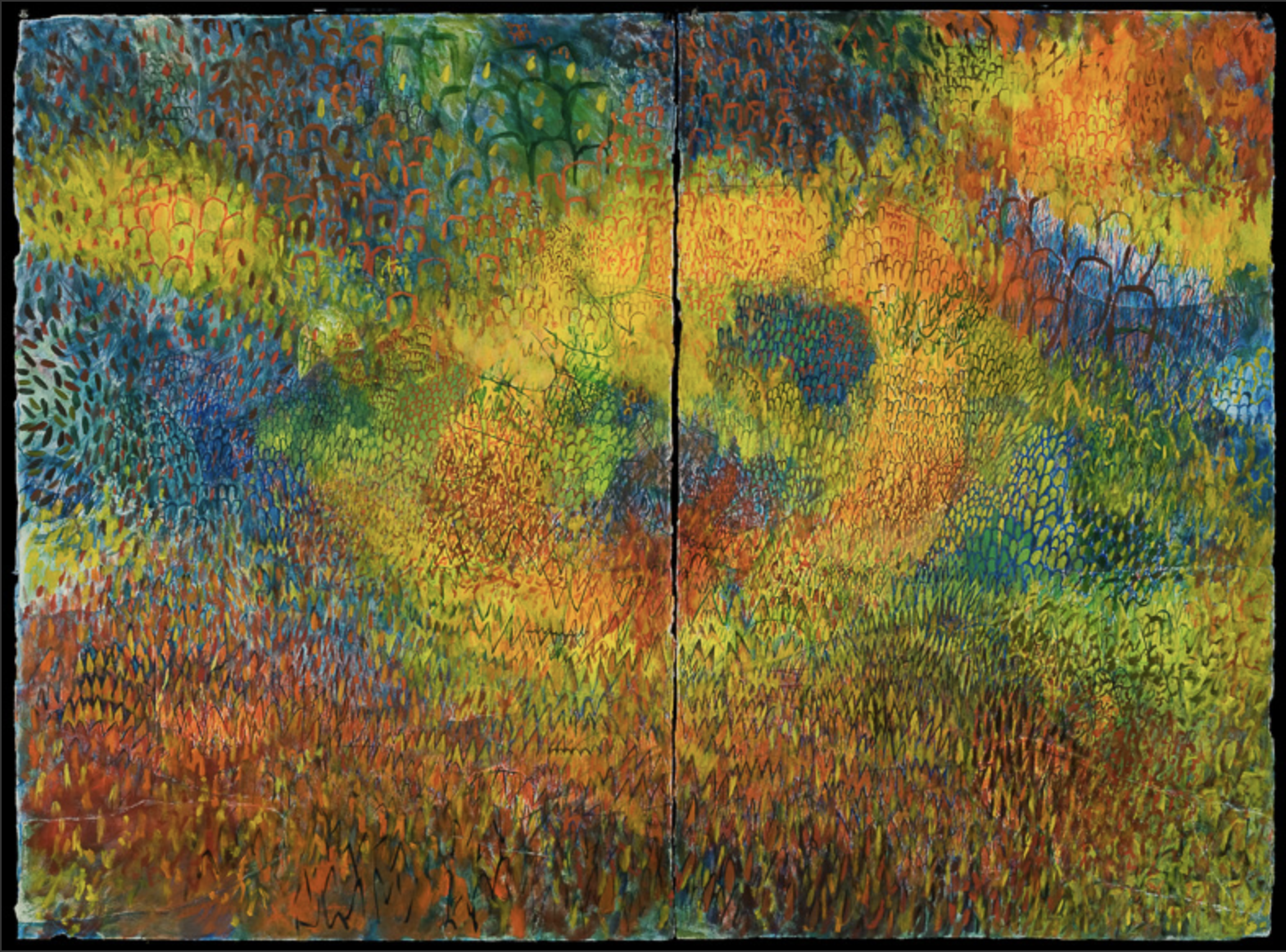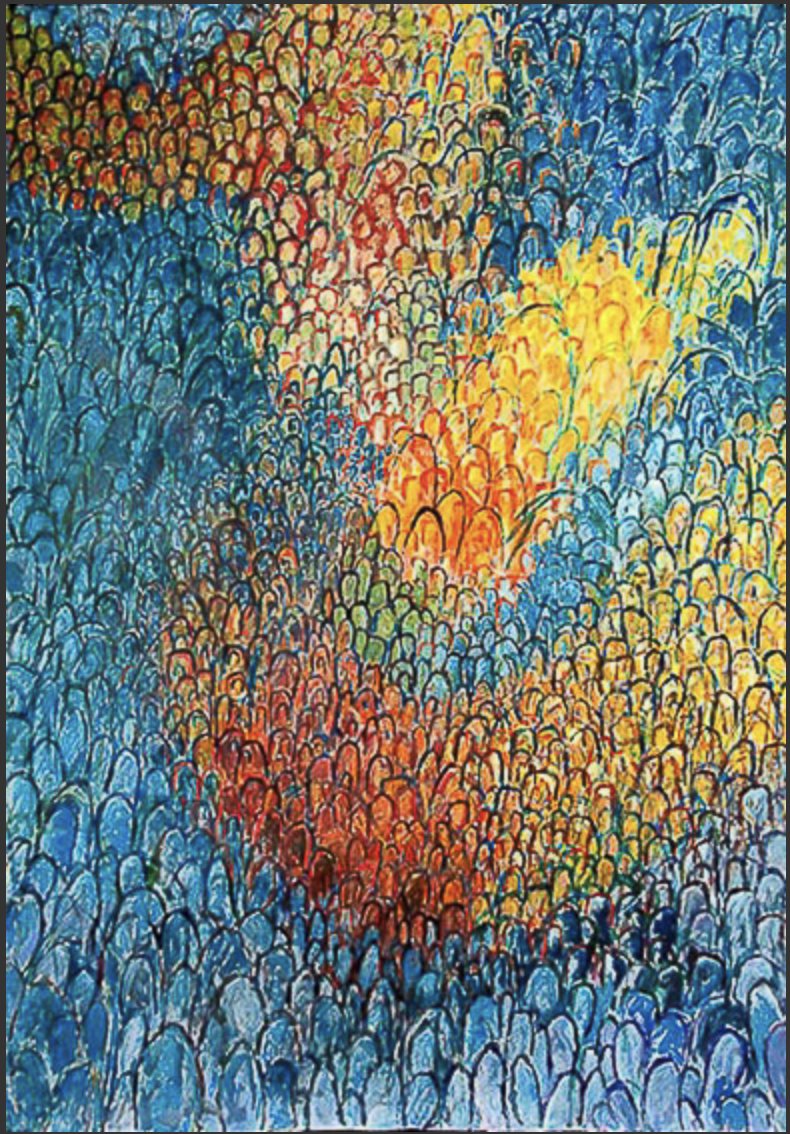Torah Study Date
Saturday, June 29, 2024
Verses Covered
Exodus (Sh’mot) 24:1-24:8
Next Session
Saturday, July 6, 2024
Starting at Exodus 24:9
Ben led us in another fascinating discussion last week, beginning with the question of how this ascent of the mountain (Ex. 24:1) relates to the previous one (Ex. 19:9). We noted first that the texts can be confusing and so it is helpful to realize that it’s not a confusion on the reader’s part but actually a confusion in the text. We noted the previous account involved the people consecrating themselves, washing their clothes and not touching the edge of the mountain lest they be stoned or shot, plus thunder and lightning and, strangely, the people seeing the sound of horns (synaesthesia). In addition, in that first account, Moses ascends the mountain with Aaron.
Ben asked us who will ascend in this account and we noted that there are three groups, Moses; Aaron and his two sons, Nadab and Abihu; and the seventy elders. We wondered about the statement that they should bow at a distance—plus about the statement that Moses alone would come over to YHVH and that the people would not come up. Perhaps in sum the people as a whole do not come up. Only Moses, Aaron and his two sons, and the seventy elders go up—and, of them, only Moses goes over to YHVH. We also noted Friedman commenting on the numerous similarities between this account and the story of the binding of Isaac (the Akedah) suggesting that this one continues the topic of obedience found in the prior one. We also noted that the peoples’ assertion that they will obey (or, more literally, hear) will soon be contradicted by their worship of the golden calf. Finally, we considered the idea that the two accounts were separately written and both of them included in the final text, a type of approach to text that we have discussed before.
We discussed Moses then telling the people all YHVH’s words (devarim) and laws (mishpatim). Perhaps the former refers to the Ten Words (or Commandments) and the latter to all the other laws enunciated so far. We noted the people saying, for a second time, that they will do what YHVH has spoken, the first being at Ex. 19:8. R. Ben pointed out, and we wondered about, the fact that they have not ascended yet—and is writing down all of YHVH’s words.
We discussed Moses getting up the next morning and building an altar as well as setting up twelve pillars for the twelve tribes. We contrasted their setting up of pillars with the recent injunction on them to destroy the other people’s pillars. R. Ben mentioned that the Israelites were dominating the space, making the territory theirs. We contrasted that with the recent idea of Jews having a religion of time (not space). Someone mentioned that Moses was pretty old to be setting up pillars. Chris responded with the idea that Moses is a mythological person. Someone mentioned the similarity of these pillars and the one Jacob set up made of stones (perhaps making it easier to set one up since individual stones weigh less than a whole pillar).
We noted Moses sending the young men to make burnt offerings and peace offering sacrifices of bulls. Then we noted various practices with blood. Moses put half the blood in basins and threw the other half on the altar. We thought blood probably represented soul and life as is not uncommon in other ancient people (who might argue that blood is life because when you lose it, you die). Chris mentioned the “blood brothers” idea and that in his childhood two children would cut themselves and then share blood to become like brothers (and pointed out that, medically, this is not a good idea).
We then discussed the third, and importantly different, affirmation of obedience. After Moses takes the scroll of the covenant (whatever that covers exactly) and reads it in the people’s ears, they affirm: We will do and we will hear (na’aseh v’nishma where the second term can be translated hear/listen/obey/understand). The interpretive issue regarding this affirmation is why it affirms doing before hearing/understanding. Wouldn’t it be more ethical to understand before you act?
Here are some of the interpretive possibilities we considered. Marilyn W. cited Rashbam saying that we will do these acts and we will listen for future ones that we ought to do. R. Myra mentioned that if we had to understand fully, we might never act, so that acting comes first. James mentioned the idea from R. David Ellenson Z’’L that themes are more important than laws, that is, we will not follow individual laws alone but will listen and try to understand the themes or general ideas of what is just and good so that we will understand what individual laws to follow. We won’t just rotely follow laws but will understand what they intend. I mentioned Emmanuel Levinas’s idea that the ethical is not simply rational or intellectual (hearing) but is a primordial responsiveness to another (doing) without which there would be no ethics. I asked whether learning through doing was a Torah value and R. Myra mentioned the idea of doing one mitzvah and another will follow, that is, by doing one, you learn to do another. We noted Ibn Ezra saying that Saadia thought the text was corrupt and we discussed the fact that saying the text is corrupt can get in the way of really thinking about puzzling aspects of a text.
We concluded by discussing the last of the bloody acts, namely, Moses responding to their assertion of obedience by throwing the blood on the people and calling it the “blood of the covenant” made with YHVH.
Our artwork this week is two acrylic-on-paper paintings from the Sinai series (2005-2012) by New Jersey Jewish artist, Harriet Finck, Revelation (above) and Round the Mountain (below). Finck studied and practiced architecture and, in midlife, became a full-time artist, first turning to collage and then to painting. “I gravitate to the breakdown and reconstitution of form,” Finck says. “I like to make tiny marks that coalesce.” She regularly creates on Jewish religious themes. Here, she portrays the revelation at Mt. Sinai and the people standing around the mountain while it takes place.


